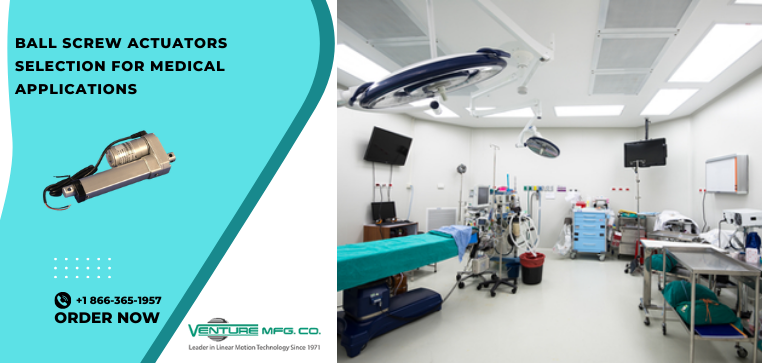Linear motion is a vital part of many medical devices and laboratory equipment. It enables devices to move smoothly and accurately, which is essential for tasks such as diagnosing diseases, performing surgeries, and analyzing test results. There are many factors that must be considered when designing linear motion systems for medical devices and laboratory equipment. The most important of these are the speed, precision, and load capacity of the system. In addition, the system must be able to withstand the regular sanitization requirements of healthcare facilities. Overall, linear motion requirements in medical devices and laboratory equipment are becoming more stringent as manufacturers strive to improve the safety and efficacy of their products. In particular, there is a growing demand for precision linear motion systems that can handle the high loads and accelerations associated with these applications. Considering these requirements, several linear motion systems are widely used in medical applications and one such popularly used system is ball screw actuators. This post analyzes these actuators and aspects of its selection for your medical application.

What are Ball Screw Actuators?
Medical applications have some of the most stringent requirements in terms of precision and reliability. This means that the components used in these applications must also meet the same high standards. One such component that meets the linear motion requirements of the industry is a ball screw actuator. Ball screw actuators are a type of linear actuators that utilize a ball screw to impart motion. The ball screw is a cylindrical shaft with helical grooves around the circumference. Balls travel up and down the grooves, which converts rotational motion into linear motion.
Factors to Consider When Selecting Ball Screw Actuators for Medical Applications
When it comes to selecting ball screw actuators for medical applications, there are a few factors you will need to take into account. First, you need to make sure the actuator is compatible with the type of medical devices used. Second, you need to find an actuator that can handle the required force and speed. The size and weight of the actuator will also need to be taken into account. Moreover, you need to make sure the actuator is safe and reliable. Let us look into these factors briefly.
- Speed: Speed is how quickly the actuator can move the load. Ball screw actuators can achieve both high speeds and high precision, making them a good choice for many medical applications.
- Load Capacity: The other most important is the load capacity of the actuator. Load capacity is the amount of weight or force that the actuator can handle. The actuator must be able to handle the weight of the object being moved, as well as any additional forces that may be exerted on it. It is important to select an actuator that is strong enough to handle the load without becoming overloaded.
- Accuracy: Another important factor is accuracy. Ball screw actuators must be able to move the object with great accuracy. Accuracy is how closely the actuator can move the load to the desired position – in order to ensure the safety and well-being of the patient.
- Wear/Tear: In addition, the actuator must be able to withstand the high levels of wear and tear that can occur in medical settings.
- Cost: You need to consider the cost of the actuator. Not all actuators are created equal, and some are more expensive than others. It’s important to find an actuator that fits your budget.
- Miscellaneous: Other factors to consider include the type of motion required, the size and weight of the actuator, and the environmental conditions in which it will be used.
When selecting ball screw actuators for medical applications, it is also important to consider the following factors:
- Force and torque requirements
- Enclosure and mounting considerations
- Environmental conditions
- Power requirements
When looking for the best actuators for medical applications, ensure to partner with a manufacturer who has been designing for the healthcare and medical industry. This is because they understand the stringent requirements of this industry and would help you find the best solution for your needs. Many experienced manufacturers can also provide customized linear motion solutions for medical applications, as they understand one-size-fits approach doesn’t work for everyone.
